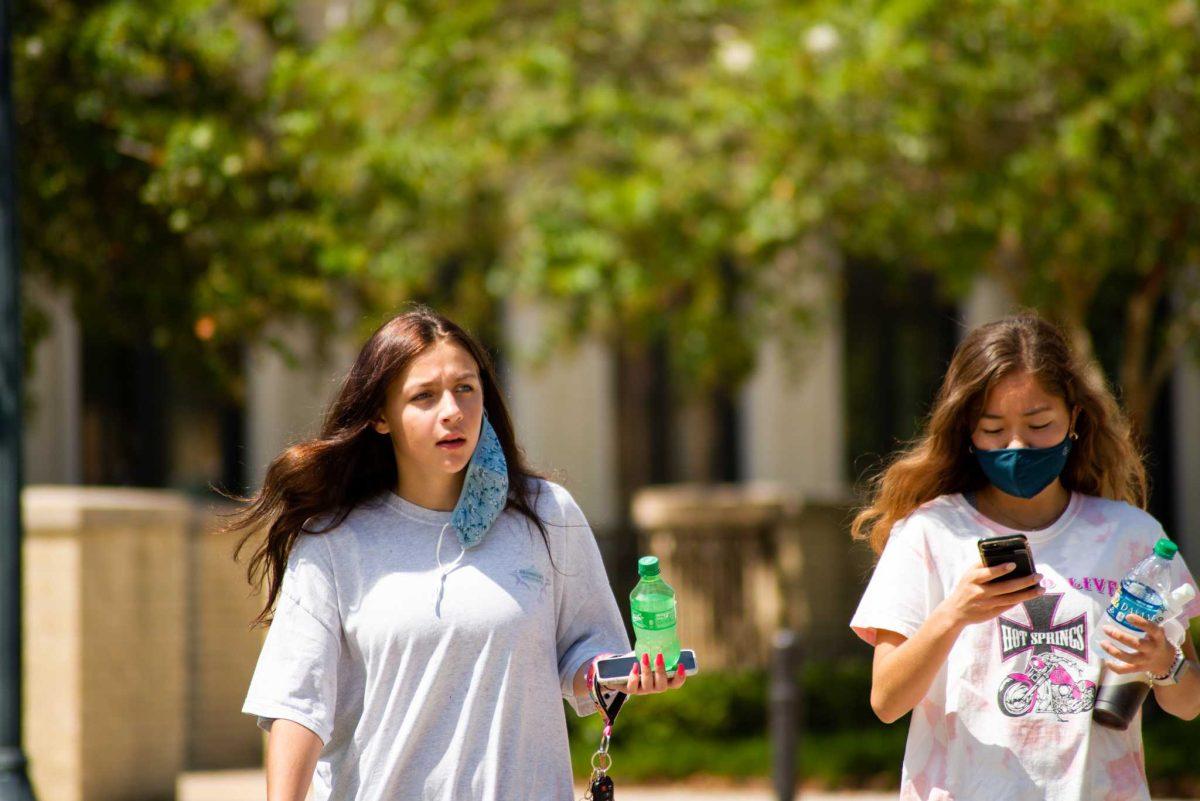As masks become a part of our daily lives to prevent COVID-19, we are now seeing the effects of wearing them. “Maskne” is becoming an issue for some mask wearers. Those with sensitive skin, like myself, are more prone, but “maskne” can affect anyone.
The medical term for “maskne” is acne mechanica, a skin condition caused by skin friction. Prior to a COVID-19 world, acne mechanica was common among active individuals, such as athletes and soldiers, or medical professionals who frequently wear masks. According to Dermatology Times, it occurs “after intense activity that causes heat and friction between sweaty skin and clothing.”
Wearing masks in the summer combines heat, humidity, friction, occlusion and a moist environment from sweating and breathing. This is a perfect recipe for a breakout.
However, “maskne” should not be a reason to not wear your mask.
Here are five ways to prevent “maskne:”
1. Wash and moisturize your face daily.
The American Academy of Dermatology Association recommends washing your face with a gentle cleanser and applying a moisturizer to create a “protective layer that can reduce dryness.” Choose a moisturizer based on your skin type.
2. Pass on heavy makeup (and frequent shaving).
Clogged pores lead to breakouts and occlusion. Reduce the layers of makeup in the areas were your masks rests. Wearing a face mask with makeup increases the chance of your pores to clog. Dr. Chien at Johns Hopkins Medicine adds “that frequent shaving can cause irritation around follicles and ingrown hairs.”
3. Wash your mask.
It is recommended that you wash your mask after each use. Washing it removes any germs on the mask, along with oils, nasal mucus, sweat, and skin cells. Touch only the bands when taking the mask off as well.
4. Make sure your mask fits properly.
To prevent chafing or rubbing of the skin, make sure that your mask fits your face properly. You want a comfortable fit across the nose, under your chin and on the sides. Constantly adjusting your face will add on to spreading germs onto your skin. Also, make sure that you are not allergic to the material your mask is made out of.
5. Stay away from harsh or new skin care products.
Avoid products such as a chemical peel, exfoliant, or retinoid for the first time due to your skin’s sensitivity.
If you develop a face mask skin problem, you should be able to treat it yourself. If it worsens or does not go away within two weeks, please visit to a dermatologist or your doctor.
5 Ways To Prevent “Maskne” in the Louisiana Heat
By Ariel Baise
August 22, 2020







